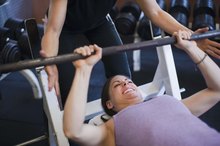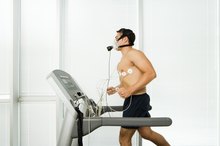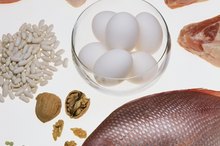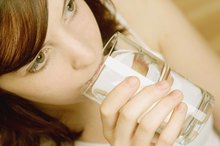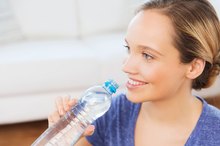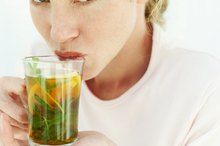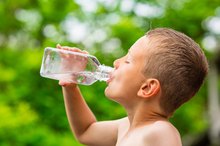What does fact checked mean?
At Healthfully, we strive to deliver objective content that is accurate and up-to-date. Our team periodically reviews articles in order to ensure content quality. The sources cited below consist of evidence from peer-reviewed journals, prominent medical organizations, academic associations, and government data.
- The Mayo Clinic: Water: How Much Should You Drink Every Day
- Family Doctor: Athletes: The Importance of Good Hydration
The information contained on this site is for informational purposes only, and should not be used as a substitute for the advice of a professional health care provider. Please check with the appropriate physician regarding health questions and concerns. Although we strive to deliver accurate and up-to-date information, no guarantee to that effect is made.
How Many Milliliters of Water Should You Drink a Day?
Average Need
Most doctors recommend drinking 1,900 milliliters, or eight glasses of water a day as a general rule to ensure adequate hydration. This figure does not include the amount of water that is in food and other beverages consumed throughout each day. The Institute of Medicine has a separate recommendation for men and women based on the total water intake from water, food, and other beverages 2.** The IOM recommends roughly 2,700 milliliters, or 91 ounces for women and 3,700 milliliters, or 125 ounces daily for men.
- Most doctors recommend drinking 1,900 milliliters, or eight glasses of water a day as a general rule to ensure adequate hydration.
- The Institute of Medicine has a separate recommendation for men and women based on the total water intake from water, food, and other beverages 2.
Water Needs Vary with Activity
How Much Water Should Weight Lifters Drink?
Learn More
Anyone engaging in physical exercise requires more than 1,900 milliliters of water daily to replace bodily fluids lost through sweat. To estimate how much water is needed during rigorous exercise an athlete should weigh himself before and after exercising for a few days to obtain an average weight loss 1. In addition to the recommended average water consumption intake, for each pound of body weight lost, 470 ml to 705 ml of water, or 16 to 24 ounces should be consumed.
- Anyone engaging in physical exercise requires more than 1,900 milliliters of water daily to replace bodily fluids lost through sweat.
- To estimate how much water is needed during rigorous exercise an athlete should weigh himself before and after exercising for a few days to obtain an average weight loss 1.
Bottom Line
Drinking enough water to prevent feeling thirsty is a method that will ensure adequate water intake in lieu of actually measuring the volume of water. Consult with your doctor to obtain a recommendation about the amount of water that is most appropriate for your lifestyle and activity level.
Related Articles
References
- The Mayo Clinic: Water: How Much Should You Drink Every Day
- Family Doctor: Athletes: The Importance of Good Hydration
- Ohashi Y, Sakai K, Hase H, Joki N. Dry weight targeting: The art and science of conventional hemodialysis. Semin Dial. 2018;31(6):551-556. doi:10.1111/sdi.12721
- Beverages, water, tap, drinking. FoodData Central. U.S. Department of Agriculture. Published April 1, 2019.
- Dietary reference intakes for water, potassium, sodium, chloride, and sulfate. National Academies Press, 2005.
- Jéquier E, Constant F. Water as an essential nutrient: The physiological basis of hydration. Eur J Clin Nutr. 2010;64(2):115-23. doi:10.1038/ejcn.2009.111
- Popkin BM, D'Anci KE, Rosenberg IH. Water, hydration, and health. Nutr Rev. 2010;68(8):439-4358. doi:10.1111/j.1753-4887.2010.00304.x
- Adan A. Cognitive performance and dehydration. J Am Coll Nutr. 2012;31(2):71-8. doi:10.1080/07315724.2012.10720011
- Dennis EA, Dengo AL, Comber DL, et al. Water consumption increases weight loss during a hypocaloric diet intervention in middle-aged and older adults. Obesity (Silver Spring). 2010;18(2):300-307. doi:10.1038/oby.2009.235
- National Institutes of Health Genetic and Rare Diseases Information Center. Aquagenic urticaria. Updated June 20, 2016.
- Centers for Disease Control and Prevention. Well testing. Updated April 10, 2009.
Writer Bio
Celeste Good has been a freelance writer since 1998. Along with articles for "Surfer Girl Magazine" and "The Beaches Leader," she has authored training manuals and user guides for Allstate and CitiBank. Good holds a Bachelor of Arts in English from the University of North Florida.
